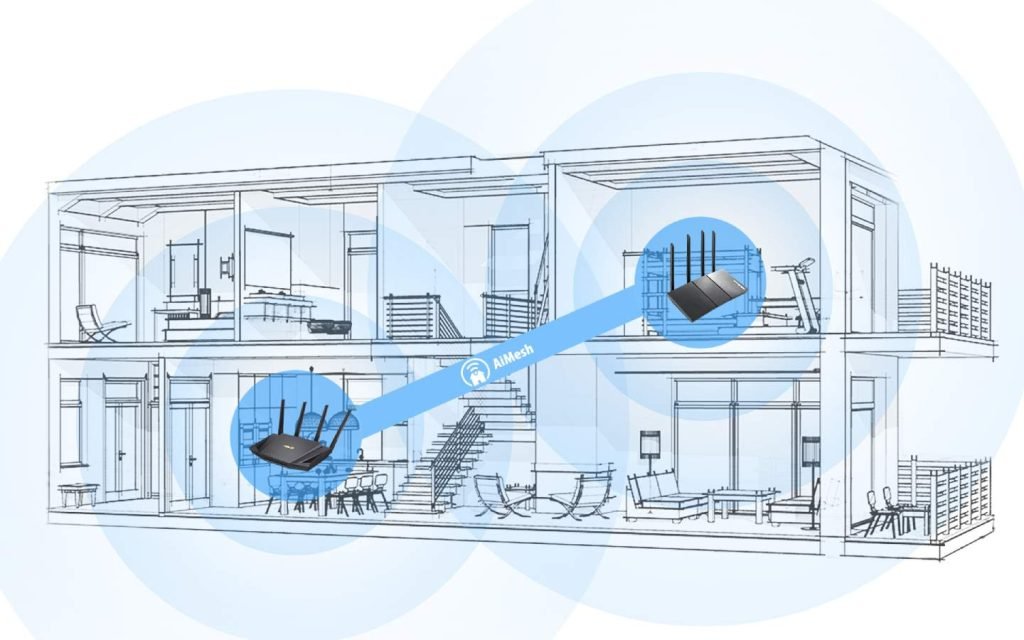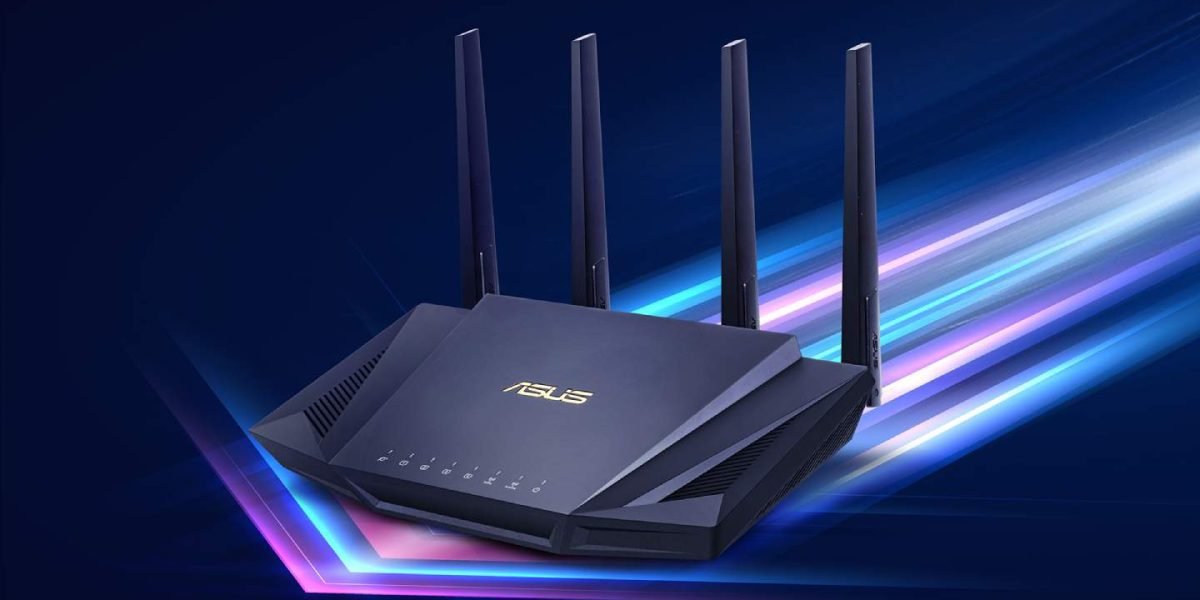In today’s digital age, having a reliable and fast internet connection is crucial to stay connected with the world. With the majority of devices using Wi-Fi, it’s essential to have a strong network that provides consistent and reliable connection in every room.
While traditional routers and wireless extenders have been available for some time, the emergence of mesh networks has become the preferred method for improving Wi-Fi coverage and throughput. This article will explore the benefits of using extendable routers to build a mesh system, and also discusses the advantages of mesh networks over traditional models and recommend some extendable routers for creating a seamless roaming capability.
Extenders vs. Mesh System
Routers available today can be divided into two groups: “regular” Wi-Fi routers and expandable Wi-Fi routers with support for Mesh systems.
Wireless Extenders were once the only way to “extend” your wireless network beyond the coverage available from your standalone router. However, some users may end up sacrificing performance and convenience and have to opt for either replacing the entire setup with a new router or purchasing an additional range extender.

Mesh routers, on the other hand, offer multiple access points that all talk to each other and can forward traffic around the network. They allow your devices to roam effortlessly through your home without losing signal and throughput.
Benefits of Extendable Routers
Unlike a regular router or range extender, extendable routers provide one single, seamless Wi-Fi network for the whole home. When it’s time to extend your network, you can simply add another unit to the mix. And as you move around, there is no need to change networks. The routers in your network will work in tandem to determine which one delivers the best signal to each connected device, and they will seamlessly transfer the connection to each other without any direct input or interaction on your part.
ASUS routers have a unique feature called AiMesh, which makes all ASUS AX routers extendable, allowing users to create their very own “mesh” network. AiMesh is not restricted to a particular market segment within ASUS product range, and there are no additional costs beyond the hardware cost, which covers both Wi-Fi 5 and Wi-Fi 6 options.
With AiMesh, users can combine different hardware to form their unique network. The AiMesh satellite is designed to imitate the Wi-Fi settings of the primary router and broaden the coverage area either through wireless or network cables. The primary router determines the features and settings of the entire network. You can start with a single router and later add a satellite or two, and it’s also an excellent way to re-use your old ASUS router as a node when upgrading to a newer one.

No login account or subscription with Asus is necessary to use AiMesh, even when using the Asus Router mobile app. For remote access, Asus uses Dynamic DNS for added privacy. Recommended extendable routers to build a mesh system include the RT-AX53, RT-AX58U, TUF-AX3000, RT-AX82U, RT-AX88U Pro, GT-AX6000, RT-AXE7800, and GT-AXE16000.
With ASUS extendable routers, users can create their own mesh network by using any two or more compatible ASUS routers, and upgrade the network with any AX model based on their needs at any given time. This means that users can easily expand their network coverage without having to replace their entire system or invest in expensive hardware.
By utilizing expandable routers, a WiFi network can achieve a “seamless” roaming capability. As an individual moves around their residence, their WiFi-enabled device will effortlessly and automatically transition to a router with a superior signal level without disrupting the connection. This means that simultaneous activities such as making voice or video calls over the Internet or playing online games on smartphones or tablets can be carried out without any interruptions.
Setup & Security
With the ASUS Router mobile app, setting up your network becomes a hassle-free process. Not only that, but you also get access to simple tools that allow you to keep track of your network topology with ease. This app lets you effortlessly optimize your home network by helping you identify the ideal placement for your node, and it offers a variety of rich features for managing all your connected devices. And all of this can be accomplished with just a few taps on your smartphone.
ASUS routers provide a wide range of advanced VPN scenarios with support for PPTP, L2TP/IPSec, OpenVPN, and the latest WireGuard security protocol. This advanced feature caters to the needs of expert users, who can access their favorite streaming services and games from anywhere. The built-in VPN server and VPN client offer flexibility to the users. With VPN Fusion, users can simultaneously operate an encrypted VPN and an ordinary internet connection. This allows specific devices on the network to use the VPN without hampering the online activities of others in the household.

By choosing an extendable router with mesh support, you can enjoy comprehensive commercial-grade security and network features throughout your entire network, without the need for a subscription fee. The benefits of choosing an extendable router over a regular model are clear, especially if you use the internet intensively on multiple devices and want to avoid issues with weak WiFi signals in different areas of your home.
Extendable Routers Summary
In conclusion, extendable routers with Mesh support offer a convenient and effective solution for eliminating Wi-Fi dead zones and achieving seamless roaming capabilities. With Mesh routers, multiple access points communicate with each other, allowing devices to roam effortlessly without signal loss.
ASUS expandable routers with AiMesh technology enable users to create their own custom mesh network using a mix of hardware, without any paywalls beyond the hardware cost. The setup is easy, and scalability allows users to add satellites or repurpose old routers as nodes. Overall, extendable routers with Mesh support provide a superior Wi-Fi experience, especially for large homes or multi-floor houses with many connected devices.
Frequently Asked Questions
What is a mesh network, and how does it differ from a wireless extender?
A mesh network is a system of multiple access points that communicate with each other and provides seamless coverage throughout the home. In contrast, a wireless extender creates its own network, which can lead to signal overlap and congestion.
What is AiMesh, and how does it work?
AiMesh is a unique feature of ASUS routers that allows users to create their own mesh network by virtually extending the range and throughput to nearby devices. It enables users to scale up their Wi-Fi network as their needs grow, and old routers can be repurposed as nodes when upgrading to newer ones.
Is setting up an extendable router difficult?
No, setting up an extendable router is generally straightforward. You can use one as the primary router and the others as satellites, and an AiMesh satellite automatically replicates the Wi-Fi settings of the primary router and extends the coverage wirelessly or via network cables.
What are the benefits of using extendable routers with Mesh support?
Extendable routers with Mesh support provide seamless roaming capabilities, allowing Wi-Fi-enabled devices to effortlessly and automatically transition to a router with a superior signal level without disrupting the connection. This makes simultaneous activities such as making voice or video calls over the Internet or playing online games on smartphones or tablets possible without any interruptions.
What are some recommended extendable routers to build a mesh system?
ASUS offers a range of Wi-Fi routers with expandable Mesh support, including entry-level AX1800 and AX3000 models like the RT-AX53 and RT-AX58U, mid-range AX5400 models like the RT-AX82U, and high-end models like the AX6000 and AXE16000.











